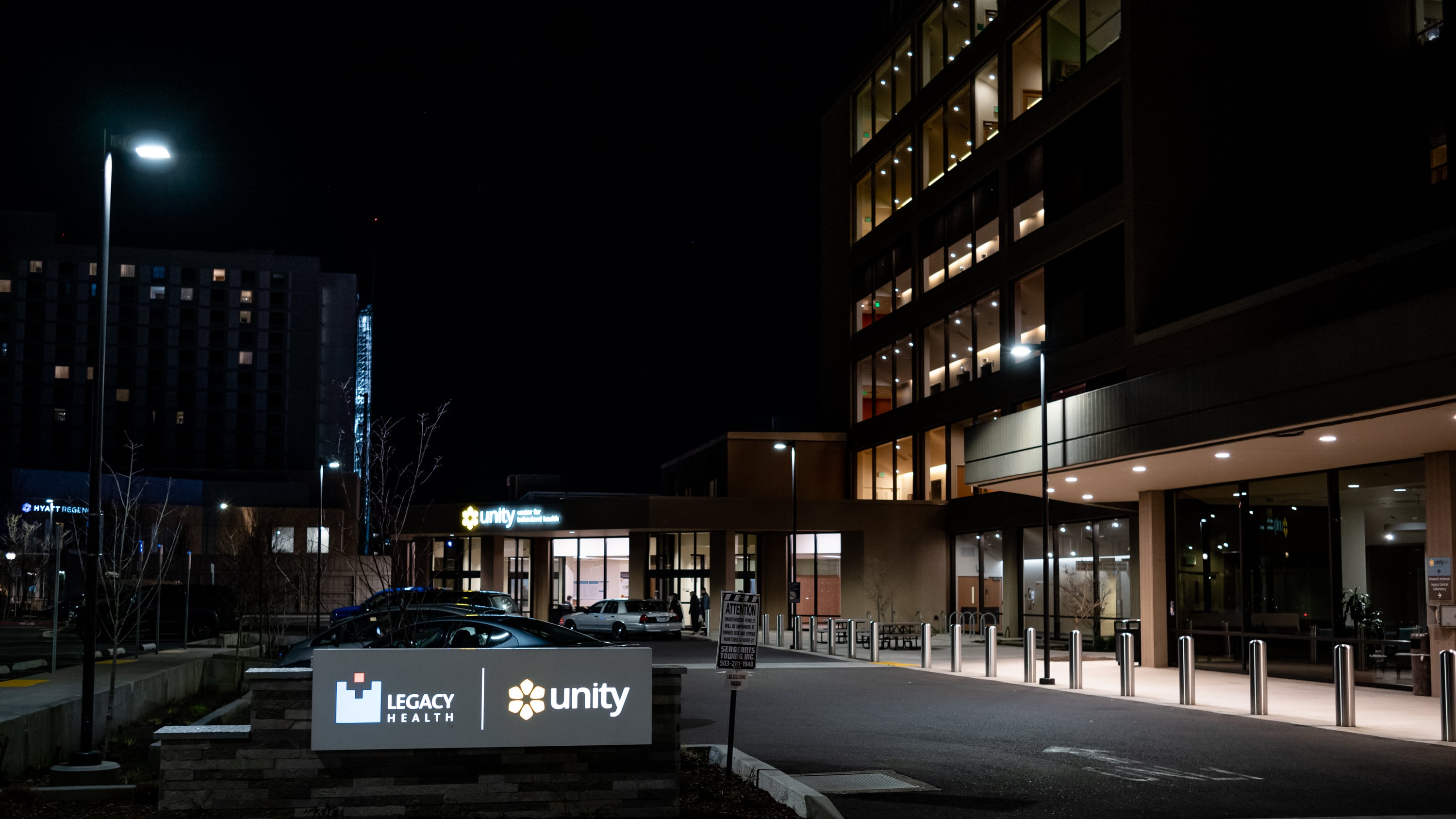A panel of judges on the 9th U.S. Circuit Court of Appeals has revived efforts by Oregon’s four largest hospitals to force the state to take civilly committed patients off their hands.
Those hospitals sued in 2022, alleging the state was neglecting its duty to care for people who had been found a danger to themselves or others. Years ago, they would have been sent to Oregon State Hospital. But the state-run psychiatric hospital is full and accepting almost exclusively people charged with crimes. So civilly committed patients are ending up in emergency rooms instead, where hospital administrators say they don’t receive adequate care.
The hospital’s case was thrown out last year. But now, the Court of Appeals has reinstated it.
“We’re pleased with the court’s decision, and we’re optimistic that this lawsuit will result in a much-needed course correction from the OHA,” said the head of Legacy Health’s Unity Center for Behavioral Health in Portland, Melissa Eckstein.
Legacy’s statement quotes selectively from oral arguments held last month, in which OHA’s attorney argued the lack of facilities for civilly committed patients is a “long-standing, challenging problem that Oregon faces.” In response, 9th Circuit Judge William Fletcher said, “it’s a challenge because Oregon is not stepping up to the plate.”
An OHA spokesperson declined to comment.
The legal opinion overrules the lower court’s conclusion that the hospital systems lacked standing because they’d effectively volunteered to treat civilly committed patients by applying for state certification. Instead, the Court of Appeals has ordered the lower court to take a closer look at the case.
In a statement, the chief executive of behavioral health for Providence Oregon, Robin Henderson, demanded the state fulfill its “legally mandated role” and provide secure residential treatment facilities and “effective community-based services.”
